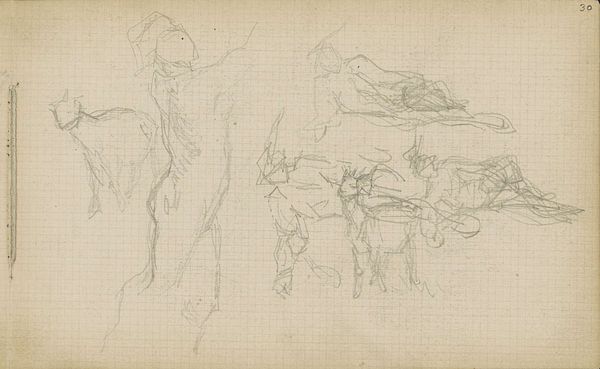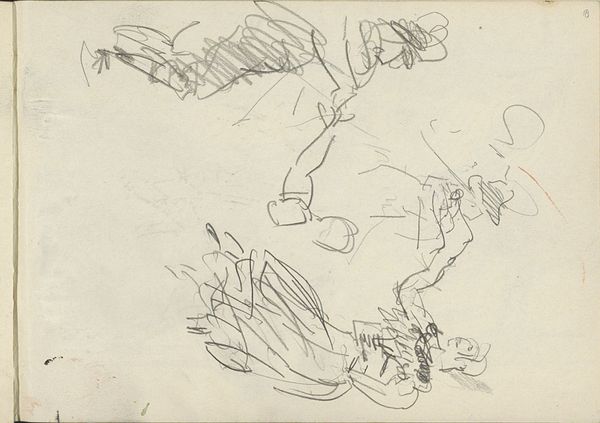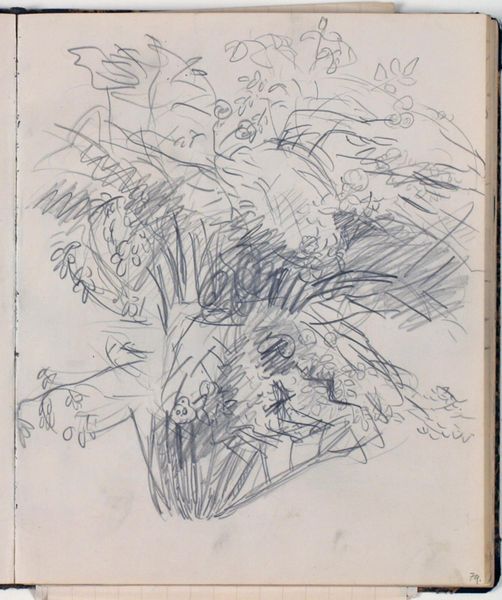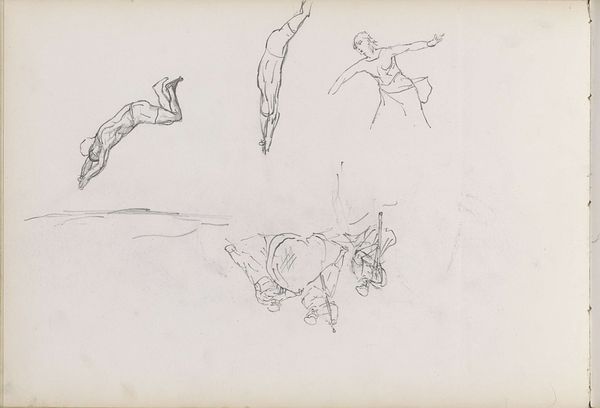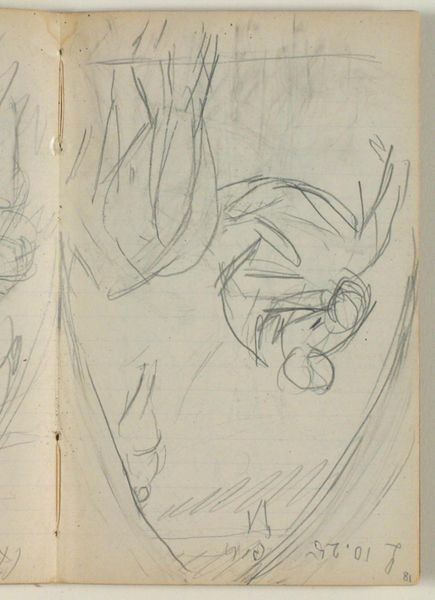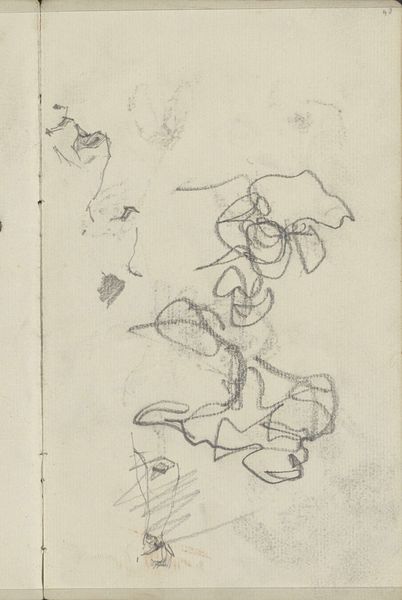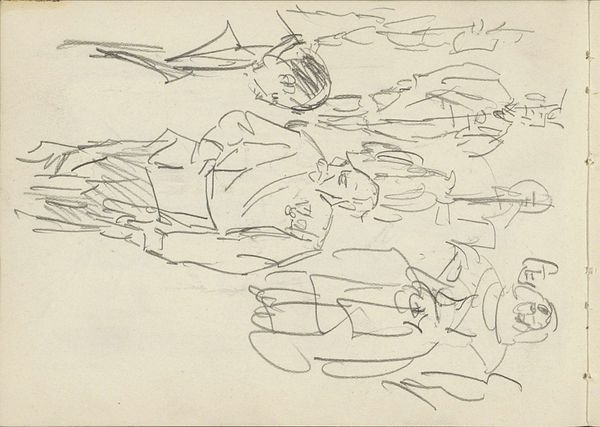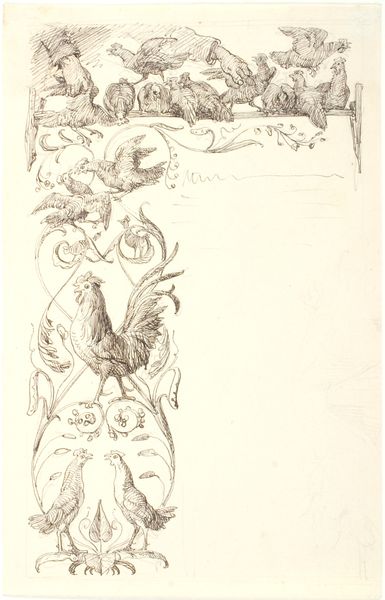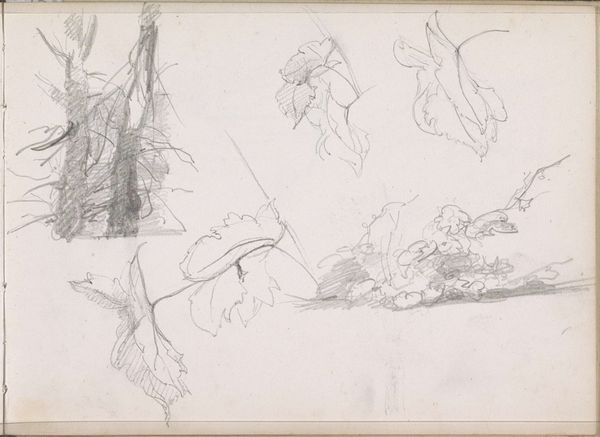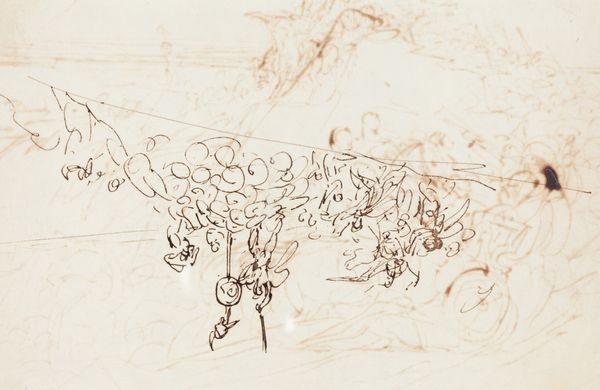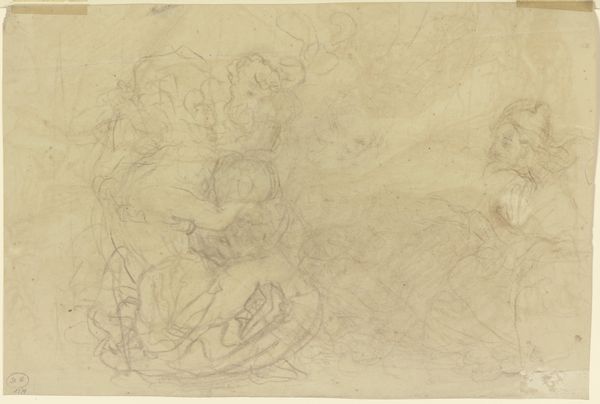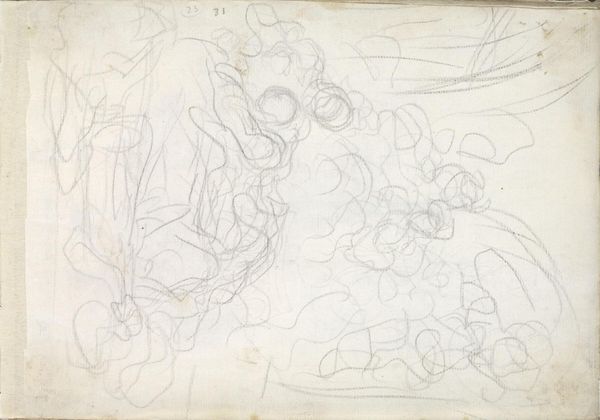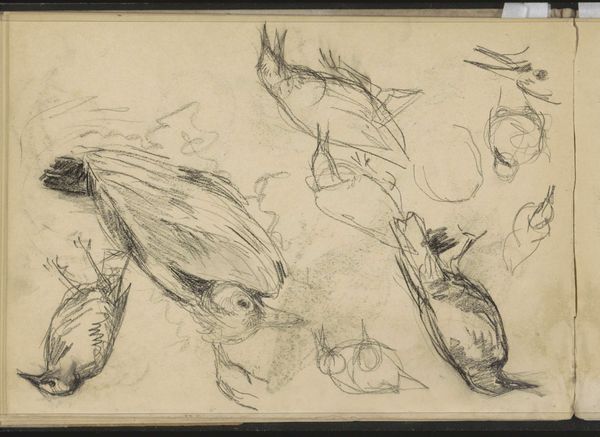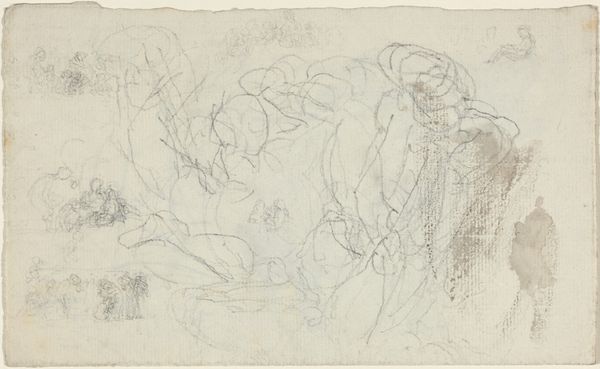
drawing, ink, pencil
#
drawing
#
pen drawing
#
pen illustration
#
pen sketch
#
landscape
#
ink line art
#
ink
#
ink drawing experimentation
#
pen-ink sketch
#
pencil
#
line
#
pen work
#
sketchbook drawing
#
sketchbook art
#
realism
#
initial sketch
Dimensions: 195 mm (height) x 312 mm (width) (bladmaal)
Editor: This drawing, titled "Plantestudier" by Dankvart Dreyer, was created in the 1840s using ink and pencil. It feels so immediate, like a snapshot from nature, yet it's also clearly a study. What do you see in this piece? Curator: This is fascinating. For me, the real story lies in the materiality of this work. Ink and pencil on paper; these were readily available, relatively inexpensive materials even in the 1840s. It speaks to a democratisation of artmaking, doesn’t it? That artists could create outside of traditional commissioned work using everyday materials? Editor: I hadn't thought about it that way, about the implications of using such accessible materials. Curator: Exactly! Consider the process: Dreyer meticulously documenting plant life. This wasn't necessarily for a grand salon painting. This was about engaging directly with the environment and utilizing drawing as a means of understanding and, arguably, controlling nature through artistic representation. The labor involved is also something to be considered. The repetitive, detailed linework suggests a focused and sustained effort, shifting value from subject to act of creation. Editor: So, the act of sketching becomes the focus? Curator: In a way, yes. It prompts us to challenge preconceived notions of art as merely a polished, finished product and encourages us to appreciate the value of the artistic process and available materials as a vital part of cultural production. Editor: I see, looking closer, how much can be discovered simply by looking at how and why it was made, and the conditions present at the time! Thank you! Curator: Absolutely. And isn't that the real joy of art, always revealing new layers of meaning?
Comments
No comments
Be the first to comment and join the conversation on the ultimate creative platform.
